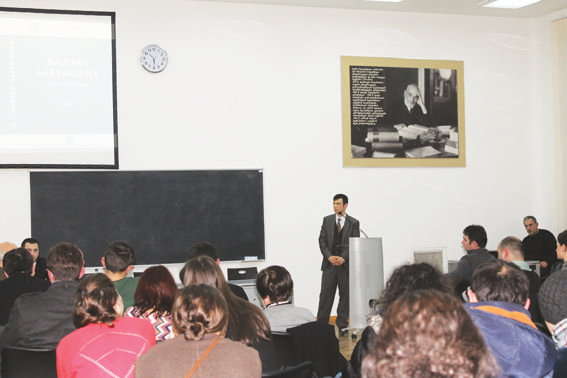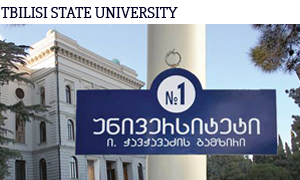

Scientists from Ivane Javakhishvili Tbilisi State University (TSU)carried out a study “Indicators of Post-traumatic Growth and Psychological Well-being in Life Stories” in December 2013 under the guidance of TSU Assistant Professor Lili Khechuashvili from the Institute of Individual and Clinical Psychology and the Faculty of Psychology and Educational Sciences. Kate McLean, Associate Professor of Psychology at Western Washington University, Director of the Memory and Identity Lab, is a partner with the Georgian project.

What is a “citizenship style”? How is this acquired and what are the particular psycho-social factors that define it in Georgia? A study carried out by Tbilisi State University researchers entitled “What defines the style of citizenship: culture, religion, nationalism?” addresses this question. Assistant Professor Khatuna Martskvishvili, Faculty of Psychology and Educational Sciences; Assistant Professor Luiza Arutinov, Faculty of Psychology and Educational Sciences; and Regional Research Coordinator Natia Mestvirishvili, Caucasus Research Resource Center studied national, cultural and religious attitudes as potential factors that contribute to the notion of citizenship style. The research was carried out in seven Georgian universities: four in Tbilisi and three in the eastern, middle and western areas of the country, respectively, and included 415 female and 270 male students between the ages of 18-24 who participated in the research.

In Georgia, the new Labor Code came into force in 2006 after several years of floundering without any theoretical principles. There were no legal bases for employment law nor was any significant education offered in the field. In the beginning, employment law was a compulsory discipline in higher educational institutions for legal studies, yet professors had no educational materials except for the legal code and a few articles.

The TSU Faculty of Law continuously analyses global theoretical and practical issues, to adapt and apply these analyses to the Georgian economic and legal context. Several research institutes within the faculty collaborate in these efforts, targeting specific legal issues. One that stands out through its research is the Institute of Corporate, Bank and Economic Law, which has recently begun a new study entitled “A General Analysis of Corporate Governance’’ led by Assistant Professor at the TSU Faculty of Law, Dr. Giorgi Makharoblishvili. The research examines the fundamentals of corporate law and issues of corporate governance. This project was conceived in 2012 when it became obvious that there was a lack of relevant Georgian legal literature. In addition to this, an analysis is essential since corporate governance is highly complex and multidimensional, and of crucial academic significance. Research results have already shown the value of this work and are making a modest contribution to Georgian legal knowledge.

Today criminal law does not only include national law--in the struggle against international and transnational crime criminal law has become a supranational legal mechanism for crime prevention and human rights. These are the conclusions of research carried out by Dr. Merab Turava, Professor of Law, with support from the Alexander von Humboldt Foundation. In order to conduct research in international and European criminal law, he visited the Scientific Research Institutes of the Faculties of Law at the University of Humboldt in Berlin, the Albertus Magnus University of Cologne and the Friedrich Schiller University of Jena.

According to the Global Competitiveness Index, out of 148 countries, Georgia has a very low rating for education. In the category of universal access to primary education (admissions), Georgia holds 32nd place while quality wise, primary education is only in the 94th place (3,4 points). According to the quality of the education system in general, Georgia is in 105th place (3.2 points), with the quality of mathematical and scientific education in 106th place (3.4 points) (Global Competitiveness Report 2013–2014, World Economic forum).

Research on emotional intelligence has intensified over the last decades, and according to common definitions it is seen as the ability to recognize, understand, express, manage and regulate emotions (J. D. Mayer & P. Salovey, 1997). Emotional intelligence helps to determine whether a person becomes a leader, controls their own and other’s emotions or achieves success. In Georgia research on this topic is relatively new, and has been undertaken by Assistant Professor Dr. Khatuna Martskvishvili, who is studying how emotional intelligence relates to mental disorders, in order to establish possible new trends for rehabilitation.



